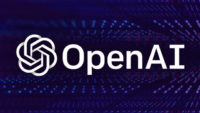OpenAI is releasing its Codex agentic coding tool in research preview. Codex lets developers delegate simple, routine programming tasks to software engineering agents that can generate production-ready code, documenting the work as they go. Codex can work on many tasks in parallel doing things like writing software features, answering questions about a codebase, fixing bugs, and proposing pull requests for review. According to OpenAI, “each task runs in its own cloud sandbox environment,” preloaded within the user’s repository. OpenAI began releasing Codex last week to ChatGPT Pro, Enterprise, and Team users, with support for Plus and Edu coming soon.
Those with qualifying plans can access Codex through the ChatGPT sidebar. Users assign new coding tasks “by typing a prompt and clicking ‘Code,’” OpenAI explains in an introductory post. “If you want to ask Codex a question about your codebase, click ‘Ask.’” Task completion typically takes between one and 30 minutes, depending on complexity, and you can monitor the agent’s progress in real time, OpenAI says.

“Codex is powered by codex-1, a version of the company’s o3 AI reasoning model optimized for software engineering tasks,” TechCrunch writes, noting that “OpenAI says codex-1 produces ‘cleaner’ code than o3, adheres more precisely to instructions, and will iteratively run tests on its code until passing results are achieved.”
AI tools for programmers with little or no traditional training, known as “vibe coders,” have surged in popularity. “As much as the vibe-coding idea seems like a meme for wannabe cool-kid coders, the new Codex agent is impressive as heck,” writes ZDNet, referring readers to OpenAI’s live-stream announcement so they can see for themselves.
“The CEOs of Google and Microsoft claim that roughly 30 percent of their companies’ code is now written by AI,” TechCrunch reports, detailing how “in February, Anthropic released its own agentic coding tool, Claude Code, and in April, Google updated its AI coding assistant, Gemini Code Assist, with more agentic abilities.”
In launching its own Codex coding assistant, OpenAI is “going head-to-head” against the aforementioned players as well as Amazon Q and indies Windsurf and Cursor — the latter two having reportedly been OpenAI acquisition targets before the company decided to launch its own app, VentureBeat reports.
“Unlike OpenAI’s previous Codex code completion AI model, the new version is a full cloud-based AI software engineering (SWE) agent,” VentureBeat emphasizes, noting while the evolution of Codex dates back to 2021, this release “marks a significant step forward in Codex’s development … as a model for translating natural language into code available through OpenAI’s nascent application programming interface.”

No Comments Yet
You can be the first to comment!
Leave a comment
You must be logged in to post a comment.